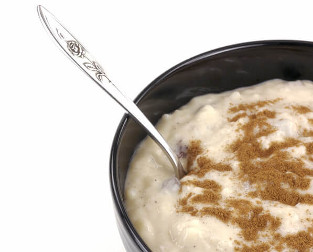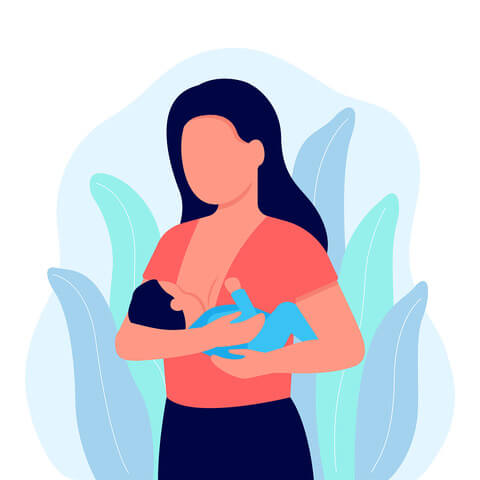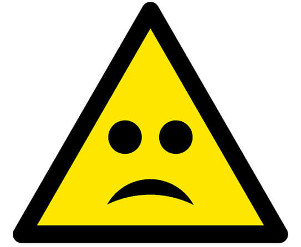


This is a transcription of the video above. There are many colloquial Spanish expressions with the word «leche»— some of them quite vulgar, so be careful! You can find more detailed information in the blog below. If you’d just like to listen to the audio (while you’re cooking, doing the laundry, or riding the bus) you can get it on Soundcloud.
English transcription:
Hi! I’m Miguel, a teacher on Real Spanish. I’m sure you have often heard the word «leche» in colloquial conversations. Well it has many meanings. Some of these expressions are quite vulgar, from “semen” to “to hit oneself” (darse una leche), depending on the context.
But today I’m going to explain the meaning and origin of the phrase «ir (o salir) echando leches», which means “to rush” or “to be in a hurry”. The expression comes from way back, when the milkman or milkmaid delivered milk to people’s homes. They were always in a hurry so that the milk was there for breakfast by the time people got up. The milk often spilled over if the pail was full to overflowing. I mean, the milkman or milkmaid rushed around spilling milk on the ground.
Another expression with the same meaning is «cagando leches». It sounds vulgar, right? Well, when a horse carried the milk churn, the milk often spilled over, forming puddles on the ground, as if the horse were shitting.
Milk is very important in Spanish culture. La lechera de Burdeos, a famous painting by Goya from 1827, was reproduced in this stamp in 1996.
If you’re interested in learning more expressions with «leche», you’ll like our mini-lesson «¡Eres la leche!», where we explain half a dozen more expressions, all very colloquial. The mini-lesson comes with an annotated transcription, a set of grammar notes, and interactive exercises. You can buy the mini-lesson on its own, or you can save 20% if you buy a pack of 5 mini-lessons.
Bye for now!
In the blogpost below you’ll learn a lot more expressions with «leche».
Click here to learn more about the mini-lesson
Blogpost:
The word «leche» is used a lot in Spanish, not only to refer to the milk of animals such as cows, goats and sheep, or mother’s milk for babies. The dictionary of the Royal Academy of Spanish (Real Academia Española, RAE) gives nine different meanings for the word. Some of these are very colloquial; for example, «una leche» may be a slap to the face. There are also many colloquial expressions featuring the word «leche». You can see more examples below.

Milk and milk products have been part of the gastronomy of Spain for more than 11,000 years. Milk is a component of the Mediterranean diet and is used in many traditional dishes and recipes such as leche merengada, (a dessert prepared with egg yolks, sugar and cinnamon), leche frita (“fried milk”, made with flour, milk and sugar) and arroz con leche (rice pudding).
In some Latin American countries such as Argentina o Nicaragua, tener leche means “to have good luck”. Dulce de leche is a traditional dish made with milk, sugar and vanilla.
The origins of some of these expressions, such as tener mala leche (to be a bad-tempered or unpleasant person), may be related to an old belief that a mother’s milk influenced the baby’s personality. In the past, it was common to hire wet nurses to feed the babies of other women who either could not or didn’t want to breastfeed their own babies. But not just any woman could be accepted as a wet nurse; her original, social status and educational background were very important, as were her physical appearance and her personality. Even Aristotle believed that there was a social connection between people who had been given the same milk, and they should be from the same village or group. Furthermore, Saint Augustine believed that Christian babies should not be fed by non-Christian women, because he believed these children would lose their faith.

Another curious expression is ir cagando leches (or ir echando leches), which means “to go really fast, to do something in a great hurry”. The expression originated from the old practice of delivering milk to people’s homes, early in the morning so they could have breakfast. This was a big rush and the milk used to spill as the lechera (dairy maid) o lechero (milkman) rushed from one house to another.
In the following list we explain some of the most common expressions with the word leche.

Watch out! Many of these expressions are considered vulgar, according to the RAE. Use them cautiously and only with people close to you. It’s not a good idea to use them in more formal contexts such as a work meeting or the first time you meet your partner’s parents! Check this out: https://dle.rae.es/leche


- Tener mala leche (Literally: to have bad milk): to be an unpleasant or bad-tempered person.
Example: El nuevo jefe tiene muy mala leche, ni siquiera da los buenos días cuando llega.

- Estar de mala leche (Literally: to be bad milk): to be in a bad mood.
Example: Hoy mi madre está de mala leche porque hemos usado su ordenador y ahora no funciona.

- Dientes de leche: milk teeth (a child’s first teeth).
Example:
Mi madre todavía guarda mis dientes de leche de cuando yo era pequeña.
We also find many other colloquial expressions related to milk:
- Ser (algo/alguien) la leche (Literally: to be the milk): to be extraordinary; may have a negative or positive connotation (like “She’s something else!”).
Example:¡Tu hermano es la leche! Ha conseguido un trabajo de actor con un director muy famoso.
Example:¡Eres la leche! Siempre estás tirado en el sofá sin hacer nada. - Ir echando leches/Ir cagando leches (Literally: to rush off throwing milk): to rush.
Example: ¡Vámonos de aquí echando leches! Acaba de sonar la alarma de incendio y hay mucho humo en las escaleras. - A toda leche (Literally: at full milk): at top speed or at maximum volume.
Example: La policía iba a toda leche porque estaban robando el Banco de España. - Hacer algo a/con mala leche (Literally, to do something with bad milk): to do something maliciously or to do something mean.
Example: Claudia puso la reunión a las 8 de la tarde con mala leche, para que nadie pudiera volver pronto a su casa. - ¡Me cago en la leche! (Literally, I shit in the milk!): An expression of annoyance or frustration, like “Shit!” or “Bloody hell!”
Example: ¡Me cago en la leche! Me he dejado las llaves de casa en la oficina. - (Verbo +) la leche de… (Literally, like milk): a lot, lots, very, really.
Example: Este profesor sabe la leche de historia, ha estudiado muchísimo. - (Sustantivo +) de la leche (Literally, like milk): incredibly, amazing; may be used in a positive or negative sense.
Example: María tiene un enfado de la leche, es mejor dejarla sola unos minutos.
Example: Tienes una suerte de la leche, te ha tocado la lotería dos veces este año. - ¡Leches! (Literally, milks): used to express surprise, annoyance, astonishment… depending on the context.
Example: No entres en casa con los zapatos sucios, ¡leches!, que acabo de limpiar el suelo. - Darse una leche (literally, to give oneself a milk): to knock or hit oneself.
Example: Pedro se dio una leche con la pared del edificio cuando se cayó de la bicicleta.
¿Have you heard other expressions with the word «leche»? Tell us below!
You can also leave us a suggestion, a comment or a question. We’d love to hear from you.
Improve your Spanish with us. Click below to learn more about our online Spanish courses and mini-lessons.


0 responses on "«¡Eres la leche!» (You’re something else!)"